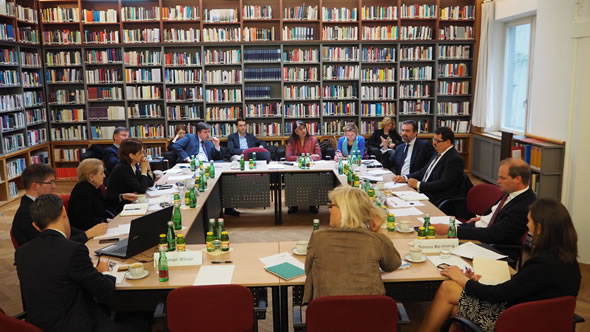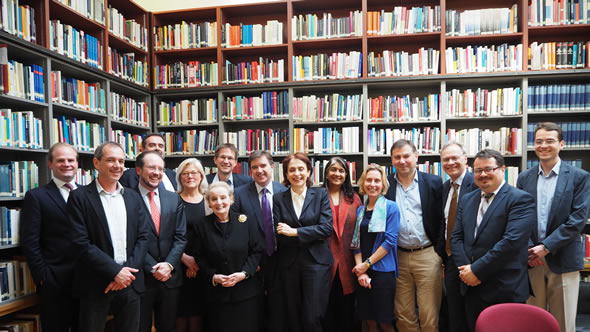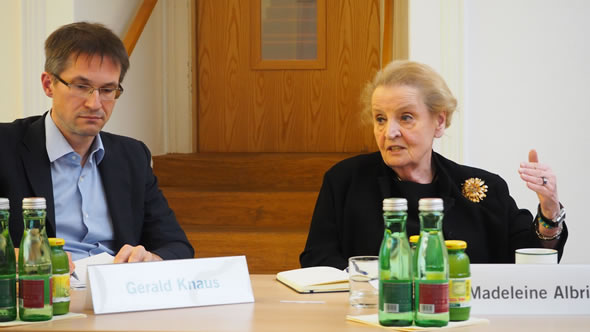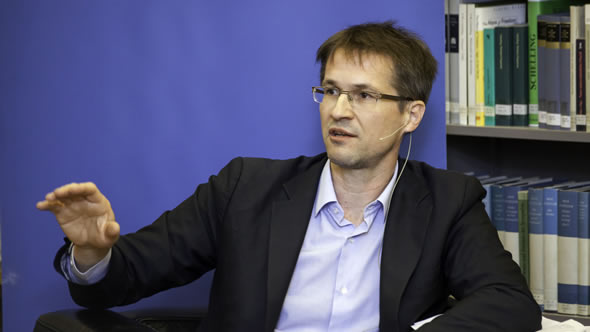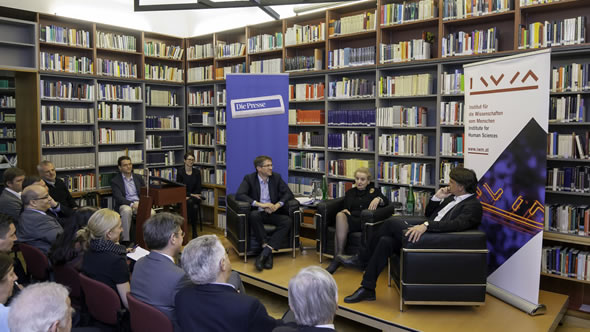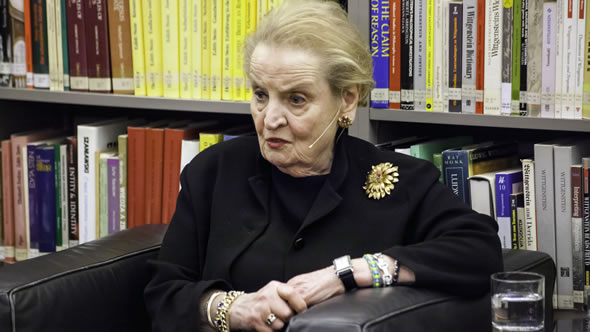Vienna – Workshop and public event with Madeleine Albright: Global Responsibility. Europe, the US and the Refugee Crisis
The Vienna Institute for Human Sciences and ESI jointly organised closed, high-level meeting on "Will the refugee crisis end liberalism in Europe? Politics, ideals and the (in) effectiveness of institutions in an era of anxiety" with Former US Secretary of State Madeleine Albright and practitioners and policy makers from across Europe to explore what the refugee crisis means for the future of liberalism, for relations with Greece and Turkey, for the refugee convention and also for the rest of the world, including the United States, where issues of migration and asylum are at the centre of political debates.
In the evening, ESI's Gerald Knaus debated with Madeleine Albright at a public event moderated by Christian Ultsch from the Austrian newspaper Die Presse.
Background
On 9 September 2015 European Commission president Jean-Claude Juncker noted in his State of the Union address that this is "not the time for business as usual"; that there is a need for a genuine, bold European response; and that "the first priority for the EU is and must be addressing the refugee crisis."
However, many months followed in which the EU appeared to lose complete control over its external borders; months of growing tensions between member states; and a series of elections across the continent showing the rising strengths of a new European coalition of illiberal, anti-refugee, anti-European political forces. Members of this coalition are no longer on the margin of politics, but sit at the table of heads of government in Brussels. As Viktor Orban, prime minister of Hungary, explained a few weeks ago:
"It is forbidden to say that in Brussels they are constructing schemes to transport foreigners here as quickly as possible and to settle them here among us. It is forbidden to say that the purpose of settling these people here is to redraw the religious and cultural map of Europe and to reconfigure its ethnic foundations, thereby eliminating nation states, which are the last obstacle to the international movement ... Mass migration is like a slow and steady current of water which washes away the shore. It appears in the guise of humanitarian action, but its true nature is the occupation of territory; and their gain in territory is our loss of territory. Hordes of implacable human rights warriors feel an unquenchable desire to lecture and accuse us."
On 18 March, the European Union and Turkey reached an agreement, calling for "swift and determined efforts" to stop irregular migration in the Aegean. EU member states also asked the European Commission "to coordinate all necessary support for Greece." In the days since then the number of people reaching Greece from Turkey has fallen dramatically, to now some 300 a days on average. But even now it is far from certain that this agreement can work, or that current implementation strategies are adequate. The power of anti-refugee politics and illiberalism remains strong, as does the challenge to the EU-Turkey deal from some of the most respected human rights organisations in the world.
ORF, Gerald Heidegger, "Identität braucht keine Abschottung" ("Identity does not need separation") (19 April 2016)
